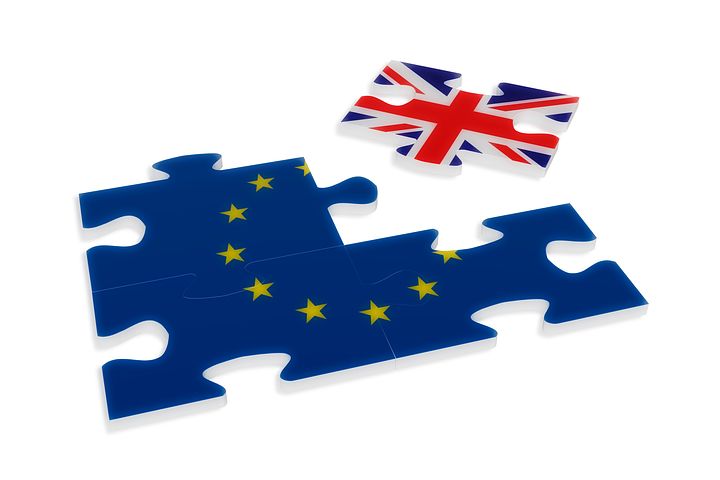
Can Brexit Frustrate a Contract?
June 25, 2019
Everything You Need to Know about the Changes to Future Bar Training
July 1, 2019Your round-up of the stories that you should discuss at interview this week:
Fears that there could be energy shortages following Brexit
Reported by Nathan Gore
Marco Alvera, head of European industry body GasNaturally, has warned that the UK may find itself vulnerable to gas supply shortages and price hikes following Brexit.
Commenting on the Brexit process, he said that “We’ve spoken to several ministers and civil servants over the last two years. Energy has not been discussed enough.” The UK imports nearly half (39%) of its gas through European pipelines, meaning that this will be a particularly relevant industry in Brexit negotiations and outcomes.
Mr. Alvera’s concern is that EU nations could restrict gas exports to the UK during winter cold snaps in order to prioritise their own citizens.
“I would make [energy security] a high priority point in the discussions, and I haven’t seen it be like that,” said Mr Alvera, who is also the chief executive of Italian gas pipeline company Snam, which owns a minority stake in one of the two main UK-Europe gas pipelines.
Along with restricting the supply itself, there may be the possibility of other European nations imposing tariffs on the gas that the UK will be importing post-Brexit. The UK’s reliance on imports, coupled with Brexit and global warming increasing the variability of energy demands, could be a toxic cocktail.
Mr Alvera also claimed that much of the UK’s gas imports originated from Russia, having been piped across the rest of Europe.
The extent of UK reliance on Russian gas has been a source of controversy since the Novichok poisonings in Salisbury in March last year.
Find out more here.
Facebook Releases Details of New Cryptocurrency “Libra”
Reported by Oliver Grazebrook
On 18 June 2019, Facebook announced its entrance to the world of global finance, with the launch of a new digital currency called “Libra”.
Unlike traditional cryptocurrencies such as Bitcoin, the value of which are notoriously unpredictable, Libra will be backed by a reserve of global assets. These assets will be supplied by the Libra Association, a collective of companies including PayPal, Uber, Mastercard, and eBay, who along with Facebook are the initial investors in the currency and will be responsible for the maintenance of its underlying systems.
When Libra launches, consumers will be able to purchase the currency online using a Libra app, or existing messenger apps Whatsapp or Facebook Messenger. Unlike traditional currency, consumers will be able to use these apps to send Libra to people around the world with no fees. The real test will be whether businesses are willing to accept Libra for goods or services, which has proven a stumbling block for other cryptocurrencies.
Facebook states that its aim in launching the currency is to provide financial services to communities who do not have access to bank accounts, but do have smart phones (around 5 billion people according to recent estimates). However, regulators in the U.S. and Europe seem less convinced by these seemingly altruistic aims, with the US chair of the House Financial Services Committee, Maxine Waters, immediately requesting that the project be put on hold until it has been investigated more fully.
This is perhaps unsurprising given Facebook’s historical disregard for its users’ privacy and the fact that, with this move into finance, the company is potentially gaining access to users’ detailed spending habits.
Facebook is still working on Libra’s blockchain, the technology on which the currency relies, but plans to launch it in 2020. If the company can allay lawmakers’ fears, Libra has the potential to become the new global currency, revolutionising financial systems around the world.
MP Suspended for Grabbing Activist
Reported by Sarah Mullane
Foreign Office minister Mark Field has been suspended after grabbing a female climate change protestor during a black-tie City dinner. In a widely-shared video, Mr Field can be seen standing and grabbing protester Janet Barker by the back of the neck, before leading her out of the room and out of the building.
According to reports, the protestors had peacefully entered the venue during a time in which Chancellor Phillip Hammonds was delivering a speech, with the intention of handing out climate-related leaflets to participants of the meal, and then providing a speech of their own to rival Mr Hammonds. Ms Barker has claimed that the group aimed to speak with the “men who are in power. The bankers, the investors that are continuing to invest into fossil fuels” and maintained that the protesters were “polite with people” throughout.
Despite the aim to maintain the peace, the minister claimed that he was genuinely concerned that Ms Barker was ‘armed’ and so made the split decision to confront her, pushing her up against a column and then guiding her out of the building. The damning footage of the incident has sparked calls for the minister to be sacked, and has prompted the City of London Police to look into a “number of third party reports of possible assault.”
When asked if she believed the confrontation amounted to an assault, Ms Barker states that she did not believe it did, and would not be pressing charges, as she did not want the incident to “turn into a mud-slinging match.”
Instead, Ms Barker has asked for him to “reflect on what he did” and suggested that he go to anger management classes. Downing Street have confirmed that Mr Field has referred himself to the Conservative Party and to the Cabinet Office, and that he will be “suspended as a minister while investigations take place.”
Mr Field has since apologised for confronting Ms Barker.
Get these updates straight to your inbox every week by signing up here or if you are an existing member, ensure you receive these emails by changing your preferences here.



